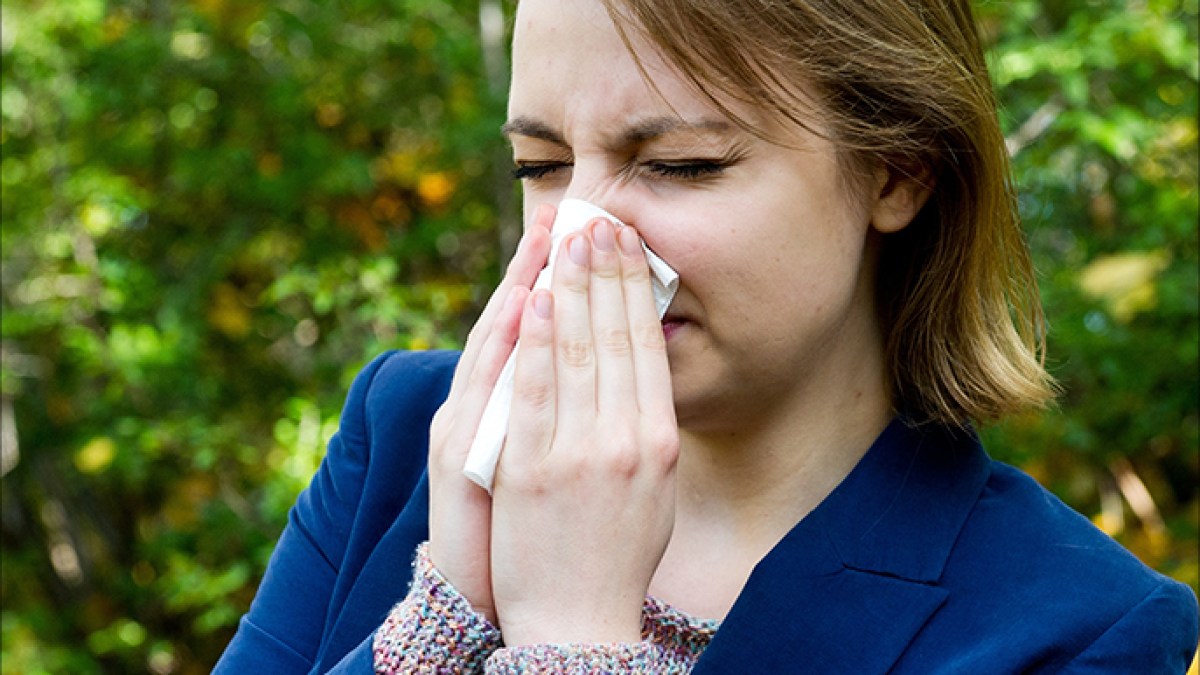play videoplay video
Video duration 44 minutes 08 seconds 44:08
The German Society for Allergy and Asthma said that seasonal allergic rhinitis is an allergy to some plant pollen, which is particularly common during the spring due to the spread of pollen.
It is also known as hay fever.
The association explained that hay fever occurs due to an incorrect response from the immune system.
He sees that pollen proteins are dangerous, so he fights them.
The tendency to develop hay fever is due to the genetic factor, and there are other factors that increase the chances of developing hay fever.
Such as: tobacco smoke, and excessive hygiene.
Symptoms of hay fever include runny nose, itchy skin, increased tear production, and sneezing attacks.
Treatment and prevention
The patient should consult a doctor as soon as he notices these symptoms in order to undergo timely treatment, in order to avoid worsening the condition and developing allergic asthma.
Hay fever can be treated with medications that relieve symptoms.
Such as: antihistamines and cortisone, while taking some measures to avoid contact with allergens;
Such as: installing pollen barriers on windows, and ventilating the house at night instead of during the day.
As a radical solution to hay fever, specific immunotherapy can be used.
Where the patient is injected with the allergen that has been identified, to gradually accustom the immune system to it, but this solution requires patience.
Because it takes a long time.
Hay fever cannot be prevented, but factors that contribute to the development of allergies can be prevented. This means, for example, abstaining from smoking during pregnancy and after birth, providing a smoke-free environment for the child, in addition to full breastfeeding in the months ( 4-6) The first.
Source: German

